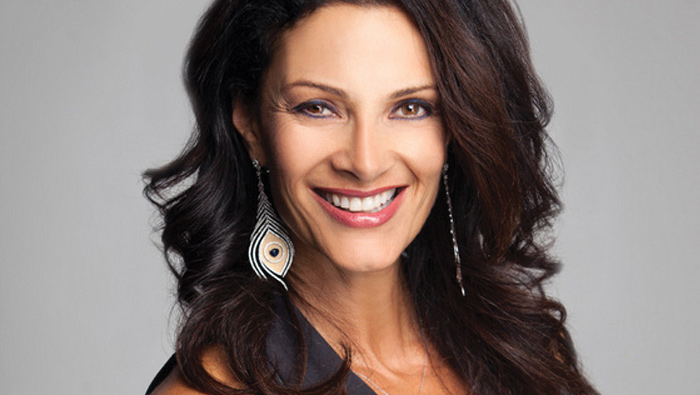“The message that I could really make a difference resonated with me. I felt empowered – I felt that I truly could act to help protect both the U.S. and Israel.”
~ Francine Coles, outgoing council chair of Phoenix AIPAC
Toronto’s loss clearly was a gain for Phoenix when Canadian transplants Francine (Shostack) Coles and her family moved to the Valley in 1977.
Francine, then 18 years old, completed her education at Arizona State University with a major in construction engineering. “I was good in math and science,” she says, “and architecture was an appealing next step,” but marriage and a stint in retail turned out to be an ideal mix for her nascent creative and artistic bent. Her life took a different route as family life and membership in Temple Chai became a priority. As her children, Haley, 25, Zach, 22, and Sam, 19, spread their wings, Francine did the same, seeking a place where she could combine her knowledge and talents to her commitment to all things Jewish.
It’s all about community
Francine describes her parents, the late Betty and Bernard Shostack, as wonderful role models for community involvement, and cites her late former mother-in-law, Lois Coles, as her initial contact to the auxiliary of the Kivel Campus of Care. She joined New Directions, a program designed “for a new generation of leaders,” and rose in the ranks to auxiliary president. During her tenure she helped craft Kivel’s “restraint-free campus,” enabling residents to best maintain their dignity. One simple but thoughtful example: Beds were lowered to allow seniors to more comfortably get in and out of them and reduce the risk of falls. “We raised more money during my terms in office than the NBA wives did for their charities!” she says with pride.
Francine remained on the Kivel board but became increasingly more ingrained in the Jewish/Phoenix axis. Within Jewish Federation of Greater Phoenix she served on the Women’s Department board, chaired a Pomegranate Division event, and was a founder of the Anne Frank Award program to honor outstanding high school students. Francine says that the federation women were uniquely warm, mothering and supportive, singling out Vicki Cabot, Wylie Silverstein and Berry Sweet for special praise.
Still fresh in Francine’s memory is the experience, “one of the most moving ever,” of traveling to Ethiopia to assist emigrés on the way to the Jewish state. “Our planes traveled almost side by side,” she recalls. “And we were able to be at the terminal waiting to greet them and help them go through the process when they arrived. The youngsters were wide-eyed, all dressed in their best, and many of the adults stopped to kiss the ground. There were few dry eyes.”
A true calling
But Francine says she found her true calling when, in 2003, her father took her to a breakfast hosted by AIPAC (American Israel Public Affairs Committee). “The message that I could really make a difference resonated with me. I felt empowered – I felt that I truly could act to help protect both the U.S. and Israel.”
At that point Francine enthusiastically accepted every role offered to her within the organization. It also was her entrée into politics. She recalls meeting, getting to know and building relationships with Arizona members of Congress.
For the past six years Francine has been a member of AIPAC’s national council, traveling four times a year to Washington, D.C., to lobby members of Congress. She is chairing one of the local political networks designed specifically for pro-Israel, single-issue fundraisers. Network participants get to meet and connect in private homes with members of Congress.
The formation of a leadership development institute here in the Valley during her three-year stint as AIPAC’s Phoenix council chair is what Francine considers her greatest accomplishment. “This is an opportunity and a way to provide a ‘deeper dive’ to people with leadership potential, and it is working,” she says.
Concluding her third and final term as council chair, Francine notes the growth and impact of AIPAC in the Valley. “We have great lay leaders and a tremendous staff,” she says. “And there is cohesion and cooperation in all we do.” She will remain on both the local and national councils while running the local network and serving on AIPAC’s national leadership institute; she also has accepted membership on the Jewish Community Foundation board.
Sorry, Toronto, you can’t have her back.






